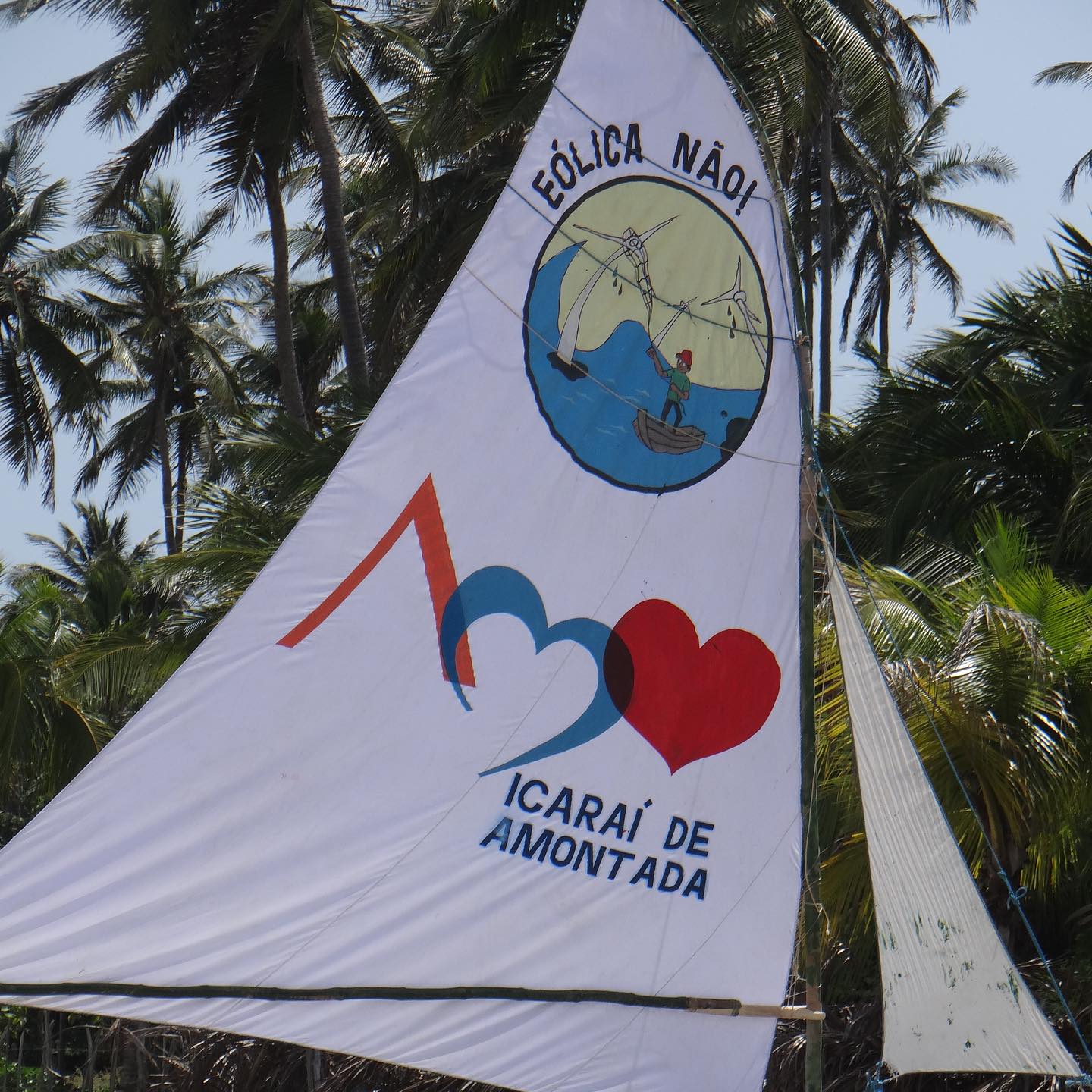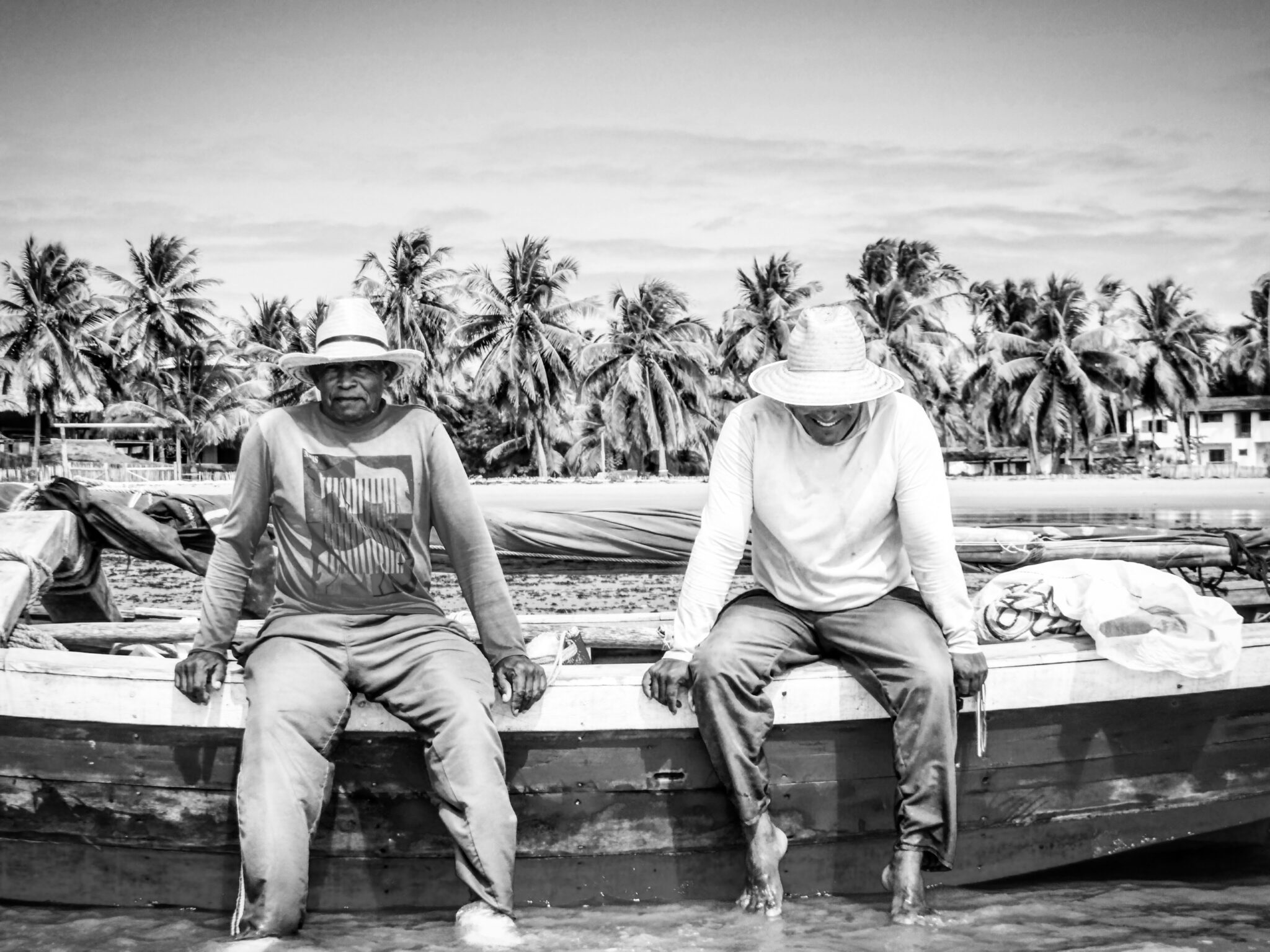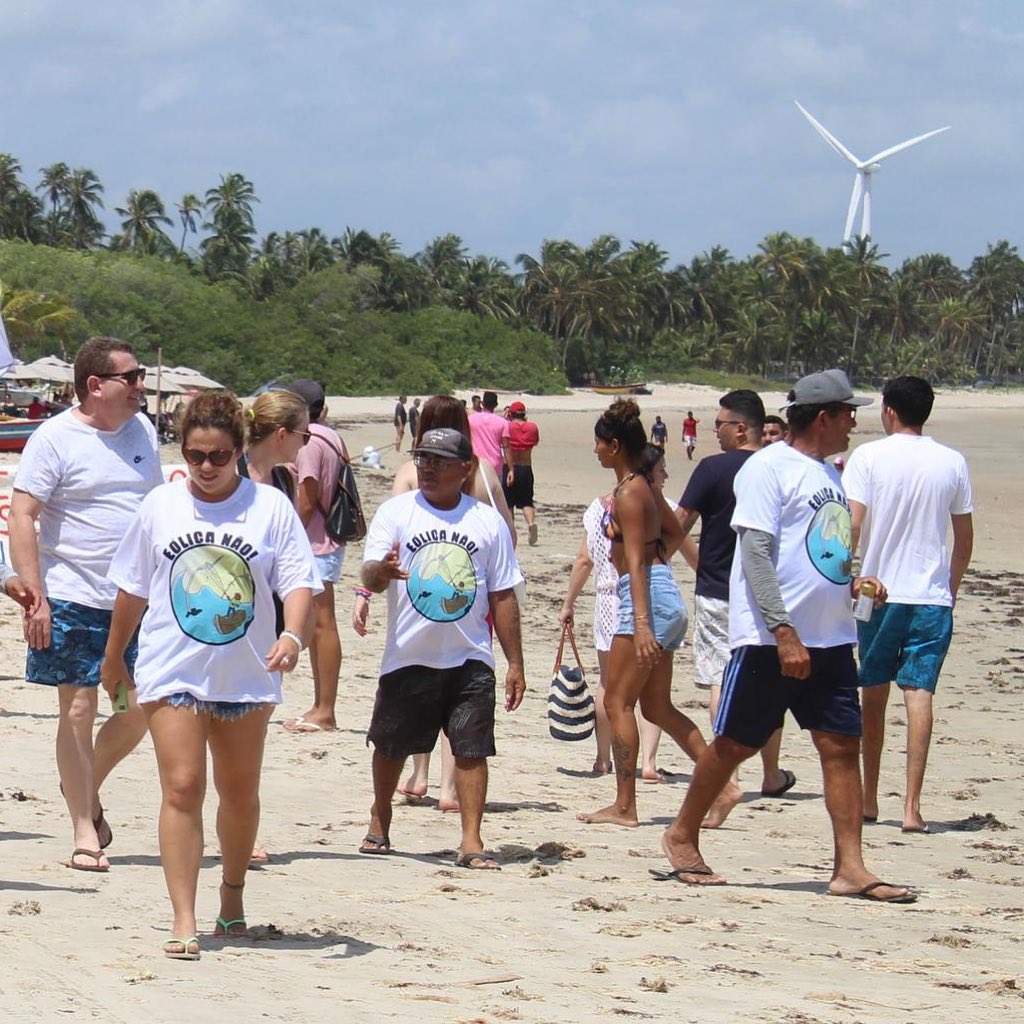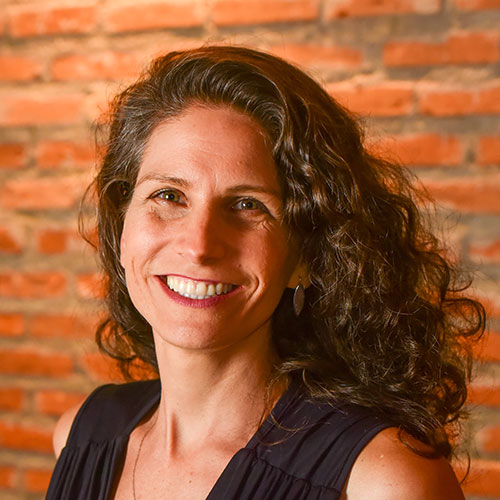“The sea is not an empty space”: Ecomaretório warns about the impact of offshore wind farms
NGO works with traditional communities in Ceará for the right to prior consultation on projects within the sea


The expansion of offshore wind farms has mobilized the population on the northern coast of Ceará in defense of their territories. The Ecomaretório collective, formed by communities from Icaraí de Amontada, Barra de Moitas, and Praia da Baleia, has been denouncing that these communities are not being consulted about the projects, which violates the rights of traditional populations.
“The projects are already in progress with Instituto Brasileiro do Meio Ambiente e dos Recursos Naturais Renováveis (IBAMA)*, but we have not been consulted either by Ibama, which is responsible for the licensing, or by other agencies. The most we have managed to achieve is speaking time at a meeting. Therefore, the projects are already violating the law because the consultation should occur before any administrative decision, even before opening a licensing process”, says biologist and Icaraí de Amontada representative, Alanna Carneiro.
For the president of the Associação Barra de Moitas (“Barra de Moitas Association”), Mateus Souza, the offshore power plant project is concerning: “We are a tourist area, and visual pollution could affect our economy. It would also be a significant problem for fishermen, as the navigation and fishing areas would likely face restrictions. Additionally, the light and noise from the towers disturb the fish. And what if there is a spill? We know that the power plants use oil engines… if there is a spill, it could contaminate the sea fish and eventually end up in the river and mangroves when the tide comes in”.
* IBAMA – Instituto Brasileiro do Meio Ambiente e dos Recursos Naturais Renováveis (Brazilian Institute of Environment and Renewable Natural Resources) is a federal agency responsible for environmental protection and the enforcement of environmental regulations in Brazil. Its duties include overseeing conservation efforts, managing protected areas, and regulating activities that impact the environment, such as licensing and monitoring industrial projects.
Offshore Power Plants
Until the beginning of this year, Ibama had registered 96 environmental licensing processes for offshore wind farms in Brazil. Of these, 25 are in Ceará. Currently, there is no regulatory framework in Brazil governing offshore projects. However, in June, the state government announced that it had signed a memorandum of understanding (MoU) with Neoenergia to begin studies on offshore wind energy projects along the coast of Ceará.
Raimundo Braga, president of the Praia da Baleia Association, notes that the community has observed a series of large vessels and hot air balloon overflights in the sea off Praia da Baleia, suggesting that studies for the project implementation may already be underway. Alanna Carneiro, who is also president of Ecomaretório, warns that this violates ILO Convention 169, which Brazil has signed.
The Convention stipulates that traditional peoples or communities must be consulted before the State approves any project that affects these populations. The recognition of a traditional people is self-declaratory and related to distinct ways of life with a strong connection to the territory and natural resources for their survival as a group, as outlined in Decree No. 6,040/2007. According to Alanna, the demands of these populations are not being considered.
“For now, we are facing threats from offshore projects, but there are already wind turbines on land along the Amontada coast. Since the implementation began around 2009, in general, prior and informed consultation has generally not been established, and when it does happen, it has not been effective. What usually occurs are public hearings, but they are typically held at the municipal seat, far from the districts, and the community’s transportation is not provided. So, decisions are often made only between the developer and the regulatory agencies”, says the biologist.

Ecomaretório
Alanna comes from a native family that maintains the tradition of trap fishing. She explains that the sea organizes the entire social life of these communities, from generating income to spirituality and the play of children. “Our diversity of fish and seafood has an economic value that surpasses any other region in the country. There are even conflicts over lobster. For example, the lobster fishing hub in Ceará is desired by Spain”.
“In addition to fishing, the sea is heavily utilized by women, who are shellfish gatherers and seaweed collectors. The population also uses the sea for leisure and spiritual worship. We hold processions and ceremonies in the sea, such as the festivals of Nossa Senhora do Navegante, Yemanjá and Saint Peter. It’s a space for well-being”, says Alanna.
“However, this marine territory has not been considered for consultation, either by public policies or by developers who view the sea as an uninhabited, unoccupied space. This brings up the issue of violating our rights as traditional communities. These are attempts to disregard and avoid consulting the people”, she points out.**
Free, prior and informed consultation
The Ecomaretório collective was formed in 2017 with the aim of providing mechanisms to strengthen the territorial rights of these populations. To this end, it promotes the importance of communities adopting the protocol of free, prior and informed consultation. The document is created by the community itself and has legal purposes for defending their territories.
Through the protocol, communities formalize how they should be consulted regarding projects and legislative or administrative measures that directly or indirectly affect their lives. “But the consultation should always be carried out, regardless of whether the communities have protocols or not”, indicates Alanna.
The protocols also cover how the sea should be used. “The maretório is the territory within the sea occupied by the populations. This is evidenced by historical records, fishing landings, and all the fishing spots that artisanal fishermen know very well. These spots are passed down from generation to generation; there’s the Uruanã rock, the cabeços”, the biologist recalls.


Wind Energy
The first wind energy auction in Brazil took place in 2009, boosting the industry in the Northeast. By 2023, the region was responsible for 92% of all wind energy produced in the country. With a strong focus on energy transition, companies promote wind farms with promises of clean energy and job creation. However, affected populations complain that they only experience the negative impacts.
“Since the wind farms started being set up near Baleia, Mundaú, and Caetano de Amontada, the influx of people into our community has increased. The demand for rental housing has grown. This has also led to increased prostitution and drug use. Crime has visibly increased”, says Raimundo Braga, president of the Praia da Baleia Association.
“Our income comes from fishing and tourism. We are artisanal fishermen, using sailboats, and it’s not possible to sail in a straight line at sea. We always sail by tacking, depending heavily on the wind. And if the sea is filled with wind turbines, how will we tack in the middle of the sea without being able to manoeuvre? Offshore wind energy is not a source of income for us; we don’t even have trained personnel to work on offshore farms”, says Edivaldo Souza, vice president of the Associação de Barra de Moitas (“Barra de Moitas Association”).
“Wind farms are everywhere – on the dunes, in the hinterlands, on the mountains, on the beaches. The parks come with promises of cheap energy for the people, but those promises never materialize. We continue to consume expensive energy. In some places, it created a few jobs; in others, none. At sea, the expectation is that it will produce ten times more because of the strong winds… Where does this energy go? And what’s left for us? Just the negative impacts?”, questions Matheus Souza, president of the Associação de Barra de Moitas.
For the president of Ecomaretório, this development model does not address human rights. “Traditional peoples and communities are not being included. Decisions are made from the top down. Usually, we don’t even know which companies are buying and exploiting our territory. It’s worrying because violations occur, and we can’t even identify who is responsible. Therefore, it is crucial to consult with the communities that live in and depend on this ecosystem”, Alanna emphasizes.


Want to Support This Cause?
The Ecomaretório collective is established as an NGO and relies heavily on donations to carry out its activities. In addition to strengthening territorial rights, the NGO also rescues, rehabilitates and monitors marine animals. To contribute, click here. For more information, visit the website or follow them on Facebook and Instagram.


